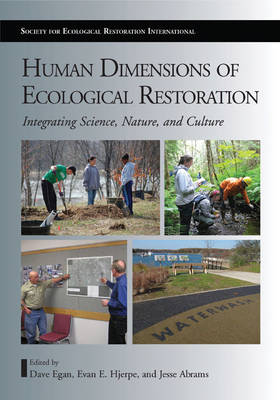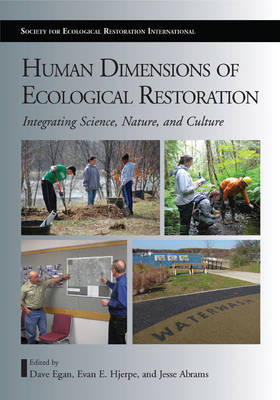
- Retrait gratuit dans votre magasin Club
- 7.000.000 titres dans notre catalogue
- Payer en toute sécurité
- Toujours un magasin près de chez vous
- Retrait gratuit dans votre magasin Club
- 7.000.0000 titres dans notre catalogue
- Payer en toute sécurité
- Toujours un magasin près de chez vous
Human Dimensions of Ecological Restoration
Integrating Science, Nature, and Culture
Description
When it comes to implementing successful ecological restoration projects, the social, political, economic, and cultural dimensions are often as important as-and sometimes more important than-technical or biophysical knowledge.
Human Dimensions of Ecological Restoration takes an interdisciplinary look at the myriad human aspects of ecological restoration. In twenty-six chapters written by experts from around the world, it provides practical and theoretical information, analysis, models, and guidelines for optimizing human involvement in restoration projects. Six categories of social activities are examined:
- collaboration between land manager and stakeholders
- ecological economics
- volunteerism and community-based restoration
- environmental education
- ecocultural and artistic practices
- policy and politics
For each category, the book offers an introductory theoretical chapter followed by multiple case studies, each of which focuses on a particular aspect of the category and provides a perspective from within a unique social/political/cultural setting.
Human Dimensions of Ecological Restoration delves into the often-neglected aspects of ecological restoration that ultimately make the difference between projects that are successfully executed and maintained with the support of informed, engaged citizens, and those that are unable to advance past the conceptual stage due to misunderstandings or apathy. The lessons contained will be valuable to restoration veterans and greenhorns alike, scholars and students in a range of fields, and individuals who care about restoring their local lands and waters.
Spécifications
Parties prenantes
- Editeur:
Contenu
- Nombre de pages :
- 432
- Langue:
- Anglais
- Collection :
Caractéristiques
- EAN:
- 9781597266895
- Date de parution :
- 16-09-11
- Format:
- Livre relié
- Format numérique:
- Genaaid
- Dimensions :
- 183 mm x 254 mm
- Poids :
- 929 g

Les avis
Nous publions uniquement les avis qui respectent les conditions requises. Consultez nos conditions pour les avis.





